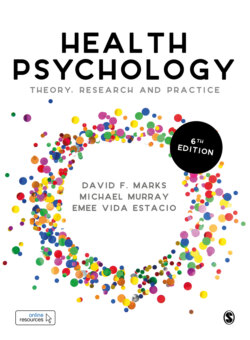Читать книгу Health Psychology - Michael Murray - Страница 115
На сайте Литреса книга снята с продажи.
Diaries and Blogs
ОглавлениеDiaries and diary techniques have been used frequently as a method for collecting information about temporal changes in health status. These diaries can be prepared by the researcher or participant or both, and can be quantitative or qualitative, or both. They can be compared to the time charts that have been used by health professionals for generations to track changes in the health status of individuals. Blogs also provide a rich source of data on different illnesses and conditions and lay ideas on ‘healthy living’.
A summary of the current uses of the diary in health research is reproduced in Table 7.1.
Table 7.1
Diaries and blogs have benefits for the participant irrespective of the researcher (Murray, 2009). Research by Pennebaker (1995) and others has demonstrated that expressive writing can be psychologically beneficial. A series of studies has provided evidence that journal writing can lead to a reduction in illness symptoms and in the use of health services (e.g., Smyth et al., 1999). There are a number of explanations for this, including the release of emotional energy, cognitive processing and assistance with narrative restructuring. However the effects are small, and not always easy to replicate.
The internet provides a resource for blogs, diaries and forums in which individuals share their experiences, seek information and provide virtual social support. Anonymity may be used by bloggers to foster self-disclosure in describing embarrassing conditions. Chiu and Hsieh (2013), using focus group interviews with 34 cancer patients, explored how cancer patients’ writing and reading on the internet play a role in their illness experience. They found that personal blogs enabled cancer patients to reconstruct their life stories, and express closure of life and how they expected to be remembered after death. Reading fellow patients’ stories significantly influenced their perceptions and expectations of their illness prognosis, which was sometimes a greater influence than their doctors.
